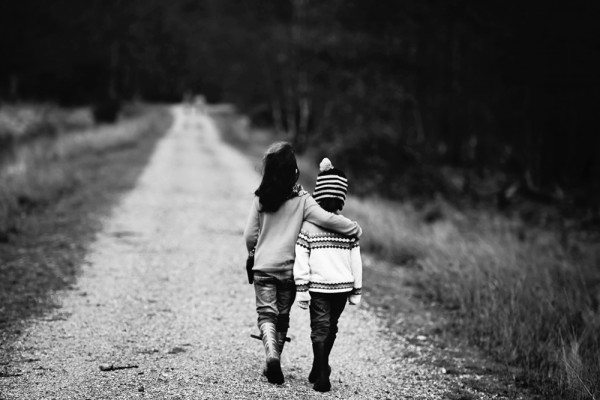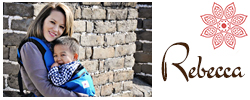“It’s kind of weird being the only kid born in the USA.” She stopped me in my tracks.
I was a trained adoptive parent. I read the books, took our agency’s assigned courses on transracial families, and attended conferences. I’d also read about preparing my biological daughter for the adoption of siblings. We purchased Asian dolls, compiled dossiers and read picture books about adoption. We survived two China trips and two transitions home with siblings adjusting to siblings and children with orphanages backgrounds adjusting to family.
I assumed our biological daughter was good to go. She loved her three siblings and we’d seen her heart expand as she held healing home babies in Beijing, walked past rows of cribs in her brother’s orphanage in Hebei, and helped care for her sister’s complex medical needs. Our little adoption advocate illustrated her future family portrait with children of many colors. Adoption was a win in her life too, but we underestimated, or ignored, that she too was navigating the China adoption family experience.
I’d prepared to be intentional with our adopted children’s transracial experience. I prayed over their hearts, and was responsive to their emotions. I made life books, bought dolls with shades of skin color, had baskets of books about adoption and China, and surrounded them with kids adopted from both Asia and Africa. Over confident, I gave us a too high score in being multicultural.
This feeling of “weirdness”, expressed in carline by our biological daughter, forced me to widen my transracial family lens. To see that I can’t assume that any of my kids are “all good” with how our family looks. It might not always be a major struggle, but if it’s a thing for their hearts on any occasion, it’s a thing for mine.
I don’t assume that I can say all the right things to my kids. Because I know God is the healer of heart wounds, I don’t overestimate my role. I know that no matter my words, no matter my heart, my kids all hear my words differently based on their personalities, backgrounds and circumstances. I don’t obsess over perfect verbiage, but I do fight for hearts.
I might endlessly tell my daughter that she’s special, that I value who God created her to be, but she might still wonder, since we make a big fuss over adoption, orphan care and China. She also notices when strangers in Target gush over her siblings with, “They are SO cute!” Mostly this is a non-issue, but sometimes it ever so subtly is.
She too experiences all the questions we’re asked. “Are they all YOURS?” while trying to pick-up a gallon of milk. “Are these three adopted?” while standing in line for ice cream. Or, more pointedly about her, “Is she your REAL daughter?” while buying movie tickets. Initially, I grimaced at those questions being heard by little adopted ears, but I now consider every set of ears. Most often it doesn’t faze them, but they still listen.
I also acknowledge that she often navigates the transracial family experience alone. With every new friend, she explains again that though they don’t look just like her, they are her REAL siblings. I know she loves them deeply, and usually doesn’t mind, but I also know that fitting in feels good.
I could easily focus all my transracial sensitivity on our adopted kids, but I can’t assume that our daughter by birth doesn’t have needs. So, as she’s tucked in, we talk about what “REAL sister” means. I might say, “We celebrated your brother’s “Gotcha Day”, how do you feel about that?” Or ask, “My friends ask me about adoption a lot, do yours?” As we flip through her life book, I make sure she understands both her story and her siblings’. We talk about how she responds to questions and marvel over our creatively designed family.

Sadly too, we don’t have the luxury of living in a world where race is non-issue, so the transracial experience is multi-faceted. Once, while swimming, our birth daughter was playing off to herself and met a friend. When this friend realized which other swimmer was her sister, she asked, “Is she Chinese? My family doesn’t like Chinese.” Now that child might have been speaking of the ethnic food, or she might have spilled some of her parents’ hate. All my girl knew was it wasn’t OK. She responded, “Yes, she is Chinese and I love her.” She paddled away, defensively playing with her sister, her first personal experience with racism.
The world’s going to show its racist side, and I just pray to be a buffer, a truth teller and an example.
I also can’t assume that my kids understand ethnicity and adoption. When very young, our daughter came home excitedly sharing, “I have three kids adopted from Africa on my soccer team!” She had buddies adopted from Africa, so she assumed that any African American child was adopted from Africa. Our littles are limited by their experiences.
As mom in a transracial family, it’s my job to explain race, ethnicity and adoption. If I say nothing, I underestimate what the world is teaching them, am overconfident about their race experience and miss out on important teaching.
Mostly, I desire to make space for my kids’ truest, unedited feelings. Adoption has been an overwhelming blessing, but I’m not innocuous to the reality that children don’t always have perfect warm fuzzies about family dynamics, siblings, or standing out. I want to be the safe place for my children to share their in-process, not always lovely, thoughts as they navigate this experience.
We are a portrait of a transracial family, and it’s OK to admit that along with beauty, comes challenge. My prayer is that as the little souls entrusted to us come to know and appreciate that God created people and families with different paintbrushes, that the watching world will see it too.


























Such beautiful words to the world! May they see the beauty in our families and the hand of God!!! Blessings and love!